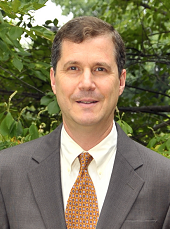ENCE 425 Decision Analysis for Engineering
Course Syllabus
Course Description
ENCE 425 Decision Analysis for Engineering Probability basics, introduction to decision analysis, Bayes Theorem, value of information, Analytic Hierarchy Process, Markov Chains and work-force planning, deterministic and stochastic dynamic programming, Monte Carlo simulation, optimization under uncertainty, manpower planning , financial modeling and forecasting.
Suggested Course Prerequisites
- ENCE 302 Probability and Statistics for Civil Engineers or some exposure to probabilistic modeling.
- MATH 240 Introduction to Linear Algebra or some exposure to vectors and matrices.
- MATH 140, Calculus I or equivalent.
Required Course Texts:
- WINSTON
Introduction to Probability Models, Wayne L. Winston (Fourth Edition)
Course Objective
Provide overview of techniques and models used in decision modeling in engineering.
Instructor
Dr. Steven A. Gabriel
Office EGR 1143
Telephone (301) 405-3242; Fax: (301) 405-2585
sgabriel@umd.edu
Grading
The overall course grade will be derived from four areas:
- Weekly homeworks
- two pre-announced in-class exams
- projects.
The distribution of the grade will be as follows:
| Homeworks | 20% |
| max {exam #1 score, exam #2 score} | 30% |
| min {exam #1 score, exam #2 score} | 20% |
| Projects (proposal, mid-term meeting, presentation, report) | 30% |
Course Policies
Students are encouraged to attend all lectures since the take-home exam and the homeworks will be closely related to material discussed in lectures.
It is assumed that students will complete the homeworks by themselves although casual discussion with other class members is allowed. Homeworks will generally be given out each week and due at the start of class one week later, no late homeworks will be accepted unless it’s a family or medical emergency.
The course is subject to the Code of Academic Integrity available on the web. The Code prohibits students from cheating on exams, plagiarizing papers, submitting the same paper for credit in two courses without authorization, buying papers, submitting fraudulent documents, and forging signatures.
The University has a legal obligation to provide appropriate accommodations for students with disabilities. Please inform Dr. Gabriel of any accommodations needed relative to disabilities. Also, University of Maryland policy states that students should not be penalized due to observances of their religious beliefs. Please inform Dr. Gabriel of such instances well in advance so that appropriate steps can be taken.
Short Bio on Dr. Gabriel
Academic Experience: Besides teaching at University of Maryland, Dr. Gabriel has held appointments in the Mathematical Sciences Department at The Johns Hopkins University, and in the Engineering Management and Systems Engineering Department at The George Washington University. In addition, he has served as a postdoctoral researcher in the Mathematics and Computer Science Division at Argonne National Laboratory.
Industry Experience: Dr. Gabriel has over 15 years of industry experience involving mathematical modeling of engineering-economic systems with applications in energy, transportation, service performance, and operations management. His specialties include optimization/equilibrium modeling, econometrics, decision support systems, and software development. His most recent industry experience includes 5 years as a Project Manager at ICF Consulting (www.icfconsulting.com) involving projects with their oil and gas group (www.icf-oilandgas.com) as well as their electrical power group.
![]()
ENCE360 home | Syllabus | Schedule & Homeworks | Projects | Downloads & Links
